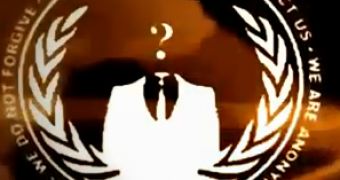Almost each day of this past week we saw headlines which read “Google was defaced.” Google wasn’t actually defaced, but some hacker groups managed to breach various DNS servers and made it look like Google websites had been defaced.
Iranian hackers defaced YouTube, Intel, Gmail and Google Turkmenistan. Then, Pakistani hackers from the PAKbugs collective made it look like Google Morocco and Google Saint Helena were hacked.
Cyber News reports that some high-profile sites from Uganda might have had the same fate.
Extortionist hackers from the Rex Mundi collective are back. After they unsuccessfully tried to blackmail Drake International, now they’ve set sights on Belgian financial institutions Buy Way.
The company’s representatives told us that they had no intention of paying the hackers because they didn’t want to “finance crime economy.”
We’ve also seen some interesting hacks this week. However, the biggest one of them appears to be the one that targeted the
United States Sentencing Commission.
Anonymous hacktivists defaced the USSC website, explaining that the FBI’s recent infiltrations haven’t discouraged them.
Another hack worth mentioning is the one which targeted MIT. The institute’s website was hacked for the second time in response to Aaron Swartz’s death.
Operation Ababil 2 continues. This week, Izz ad-Din al-Qassam Cyber Fighters launched DDOS attacks against not one, not two, but 24 US bank websites.
They started with PNC, Wells Fargo, Regions, Bank of America, Citibank, Harris, BankZions, Capital One, Huntington and BT&T.
Then, they added 14 new financial institutions to their target list: Synovus Bank, Bank of the West, Union Bank, Umpqua Bank, University Federal Credit Union, UMB Bank, People's United Bank, Patelco Credit Union, M&T Bank, First Citizens Bank, Citizens Bank, Key Bank, BBVA Compass, and Comerica.
In the arrests/convictions/charges section we had the two British Anonymous hackers who were sentenced to jail for launching DDOS attacks on PayPal.
We’ve also learned that self-proclaimed Anonymous spokesperson Barrett Brown has been hit with new charges.
In addition, three individuals suspected of being involved in the creation and distribution of the Gozi malware have been charged in a Manhattan court.
Here are some other interesting stories, in case you’ve missed them:
Sony has been fined by the UK’s Information Commissioner’s Office for the 2011 hack
GitHub’s new search engine exposed the private SSH keys of several developers
United States senators have introduced a new cyber security bill to Congress
Anonymous hackers boycott Mega services
Twitter addressed a security hole which allowed third party apps to access DMs without permission
The Canadian student expelled after finding vulnerabilities in Omnivox was offered a job by the software’s developer.

 14 DAY TRIAL //
14 DAY TRIAL //